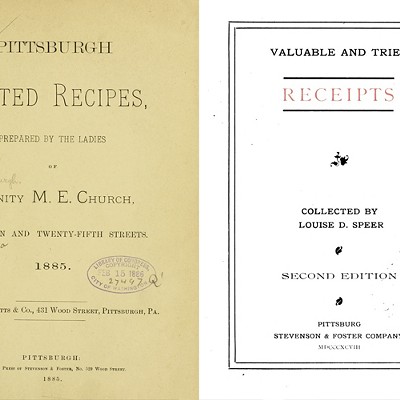Friday, December 17, 2010
Doyle wins some, loses some
The past 24 hours have been a mixed bag for Congressman Mike Doyle.
On the one hand, his hopes -- expressed here last week -- that Democrats would be able to change a controversial tax-cut compromise plan have been dashed. On the other hand, a long-cherished legislative initiative -- to establish low-power FM stations for use by community groups -- has never been closer to success.
As I noted earlier today, last night Doyle supported a doomed attempt to raise the estate tax on wealthy Americans, then voted in favor of the bill. The measure provides extended unemployment benefits and other aid to struggling families in exchange for GOP-favored tax cuts that benefit the wealthy.
It's a startling change from a week ago: Then, Doyle was confident the tax compromise "isn't going to be brought up in its current form." But the measure he voted for last night was exactly the same bill that the Senate had sent over.
What happened?
"We were like a dwindling number of soldiers," Doyle says of liberal House Democrats, "who realized that there was no cavalry to back us up."
The Senate voted 81-19 in favor of the measure, which didn't exactly inspire confidence. But Doyle says it was the White House that doomed any hope of changing the measure.
"We were trying to build some momentum and show we were willing to fight for this thing," he says. "If the President had given us any sign that he wanted a battle on that bill, we would have done it."
But that didn't happen. Trying to change the measure could have resulted in a protracted battle with Republicans, who had shown a willingness to hold unemployment benefits hostage unless tax breaks for the wealthy were continued. And in the days after the compromise was announced by Obama and Republican leaders, Doyle says, it become increasingly clear that Republicans in the Senate "were just dying to get out of this deal."
Thanks in part to opposition from right-wing commentators like Rush Limbaugh, "people really had the sense that Republicans wanted to kill this bill," in order to appease the Tea Party base. Changing "even a comma" of the bill might have given the GOP a pretext for opposing the bill, Doyle says. "And at that point, we look like we're helping Glenn Beck blow this thing up. And we know that come January 5 [when a Republicans take control of the House in a new session of Congress] we won't get a bill that looks anything like this one."
So House Democrats surrendered just a week after pledging to fight. They gave up on plans of toughening the estate tax. (There was a vote on an amedment on the proposal, but "everybody knew that it was going down," says Doyle, who voted for it anyway.) They even gave up on a relatively innocuous plan to restructure a break on the payroll tax, so taxpayers could reap the windfall in a one-time payment early in 2011. All because of fears about how right-wingers would respond.
"It's been a frustrating two years" Doyle concludes. "The House has passed the president's whole agenda, essentially." But much of that legislation has idled in the Senate. "People put their careers on the line, and now a lot of us aren't coming back."
Still, this Congressional session wasn't all bad news for Doyle. He did win unanimous House approval for a long-cherished cause: empowering community groups to set up low-power FM radio stations. Doyle has been working on the issue for the better part of a decade, and now -- "at the 11th hour, in the nick of time" -- he has won an agreement that may earn the measure's passage.
Doyle's efforts have long been opposed by the National Association of Broadcasters, whose members feared that low-power signals would interfere with reception of their own programming. But the various stakeholders settled on language that gave broadcasters recourse with the FCC should such interference take place. The NAB has now come out in support of the measure, which will allow churches, civic groups and others to broadcast anything ranging from niche music programming to neighborhood news.
Doyle says that there was little chance that low-power stations would cause trouble for commercial broadcasters. The changes to his bill, he says, were "a matter of giving broadcasters a mechanism to address a problem that we don't think really exists."
But "the bottom line is that they've finally signed off, and all the groups we've been working with support the bill as well. If this bill passes, everybody will be happy -- a rare thing in Washington."
Of course, passing the bill now depends now on ... the Senate, which must vote for it amid a lame-duck session where Senators are also carping about Don't Ask/Don't Tell, the DREAM Act, and an arms-control treaty.
What does Doyle think the prospects for his bill are? "It's another leap of faith," he sighs.
Tags: Slag Heap









